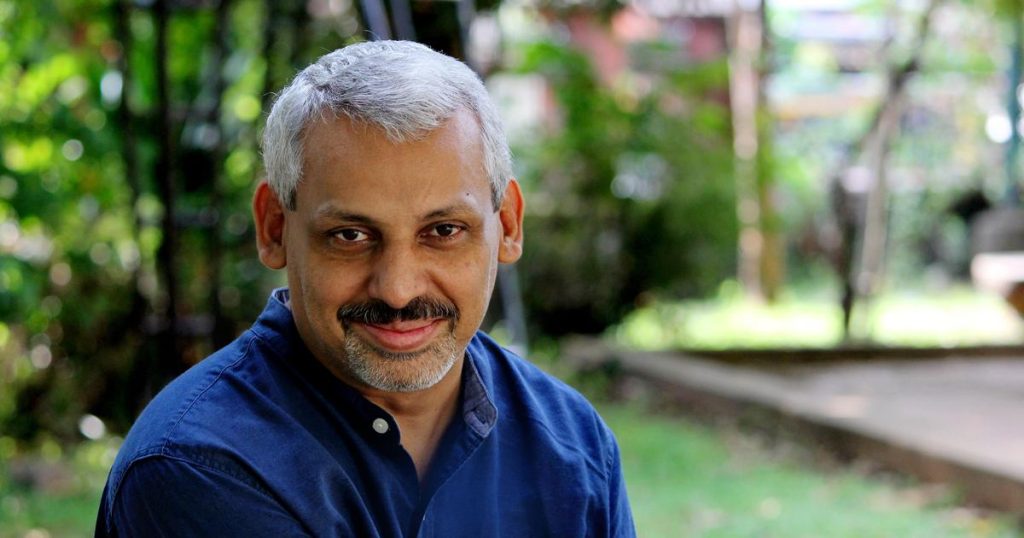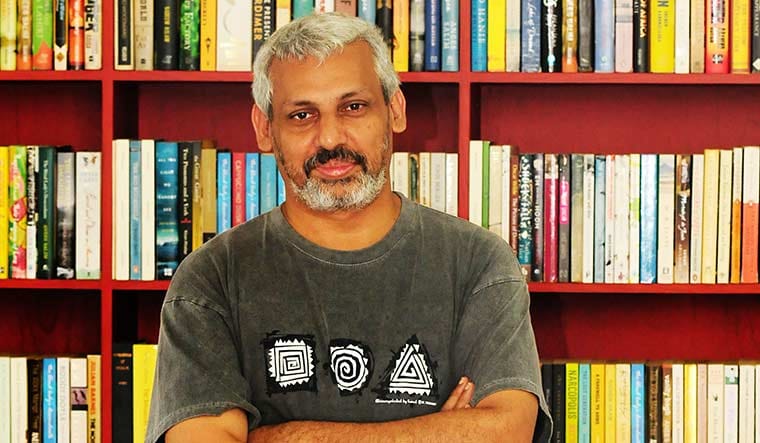Salim was born in Varkala, a small town in Kerala, in 1970. He says that he inherited his love for words from his father who used to work in West Asia…reports Dr Shujaat Ali Quadri (Chairman of Muslim Students Organisation and Community Leader)
Writers with Muslim names are rare. English writers with Muslim names are rarer. In this predicament, the emergence of Anees Salim as a star in Indian literary firmament is relieving. A novelist, Salim has told stories of small towns, mohallas and obscure characters that are largely Muslims and otherwise are ignored, little understood or misunderstood.
With his inimitable sense of humour, craft and wry reflections on human frailties, his works are something sui generis. And within ten years into his literary career, and seven books to credit, Salim has become an indispensable part of English fiction in India.
Salim’s craft and stories have won him a plethora of accolades. He won the coveted Sahitya Akademi in 2018 and before that, The Hindu Literary Prize, Crossword Book Award, and Bangalore Atta Galatta Literature Book Festival’s Best Fiction (English).
Anees Salim’s works include Vanity Bagh (winner of The Hindu Literary Prize for Best Fiction 2013), The Blind Lady’s Descendants (winner of the Raymond Crossword Book Award for Best Fiction 2014 and the Kendra Sahitya Akademi Award 2018) and The Small-town Sea (winner of the Atta Galatta-Banaglore Literature Festival Book Prize for Best Fiction 2017). His seventh novel The Bell Boy hit the stores in August. A famous UK publisher will publish it for the European market.
Salim was born in Varkala, a small town in Kerala, in 1970. He says that he inherited his love for words from his father who used to work in West Asia.
“My father wanted to be a writer, even though he never said so. He was an avid reader of literary fiction and we had a big library at home, and that was how I developed a deep love for reading. The library had no room for popular fiction, and I remember buying a book by Harold Robbins and putting it on the top rack because I liked the look and size of the book. The next morning it disappeared and I knew such books would never have a place in our library,” he says.
As a teenager, says Salim, he loved reading VS Naipaul, Graham Greene, George Orwell, Gabriel Garica Marquez, John Updike, Saul Bellow, William Faulkner and Christopher Isherwood. Voracious reading helped hone his writing.
Yet the road to acclaim has been far from easy. Salim had his first breakthrough after years of rejections. The book was Tales from a Vending Machine, a novel about the daily travails of Hasina Mansoor, a young Muslim hijabi girl who works as a vending machine assistant at an airport.
Written in the first person, it draws her character through a mundane day, punctuated by her sense of humour, her resilient nature, and her daydreams of stumbling on the extraordinary in a dreary, ordinary existence. Salim still manages a Facebook profile by the name of Hasina Mansoor, whose posts are characteristic of his protagonist’s wit and humour.
All of Salim’s novels trace his own journey through different social settings and his encounter with various real-life characters. In Vanity Bagh, he depicted the social side of Hindu-Muslim conflict North-Indian milieu. “I grew up in Kerala but travelled extensively across the country to see places and meet people. I stitched together the mohalla called Vanity Bagh from many Indian cities I fell in love with. And the idea of Vanity Bagh happened many years ago when someone, on the brink of losing an argument, asked me to ‘Go and live in Pakistan’. That statement stayed with me and slowly developed into a novel,” he said in an interview to The Wire.
He says researching and working on the novel was a sort of rediscovery of India where Muslims are subjected to a grim test. “Many years ago, before Pakistan was regularly chosen as the place ‘the unwanted ones’ should be banished to. It hurt me beyond words. But it also made me relook at the cities where certain mohallas are overtly or secretly referred to as Little Pakistan. And that was how Vanity Bagh was born,” he said.
Besides, introducing Muslim characters and mohalls, Salim has explored life in small towns. “I find it easier to place my characters in streets I have roamed as a child, in the house I grew up in, by the sea and on the cliff my hometown is famous for. All this reflects in my stories,” he says.

All his books are loaded with social and political concerns, but Salim insists that more than politics, he prefers to focus more on human cries than political noises.
Despite writing successful novels, writing is not his fulltime profession. He works as an advertising professional. He is the Creative Director for FCB Ulka, the multi-national advertising firm, and lives in Kochi. “My day job as an advertising professional has neither shaped nor adversely affected my writing career. To me, they are different streams of life and I don’t want one to influence other,” he says. Despite his background in PR and advertising, Salim makes a point of avoiding promotional tours and speaking at literary festivals.
ALSO READ-Malika Shah, woman achiever from Kashmir

